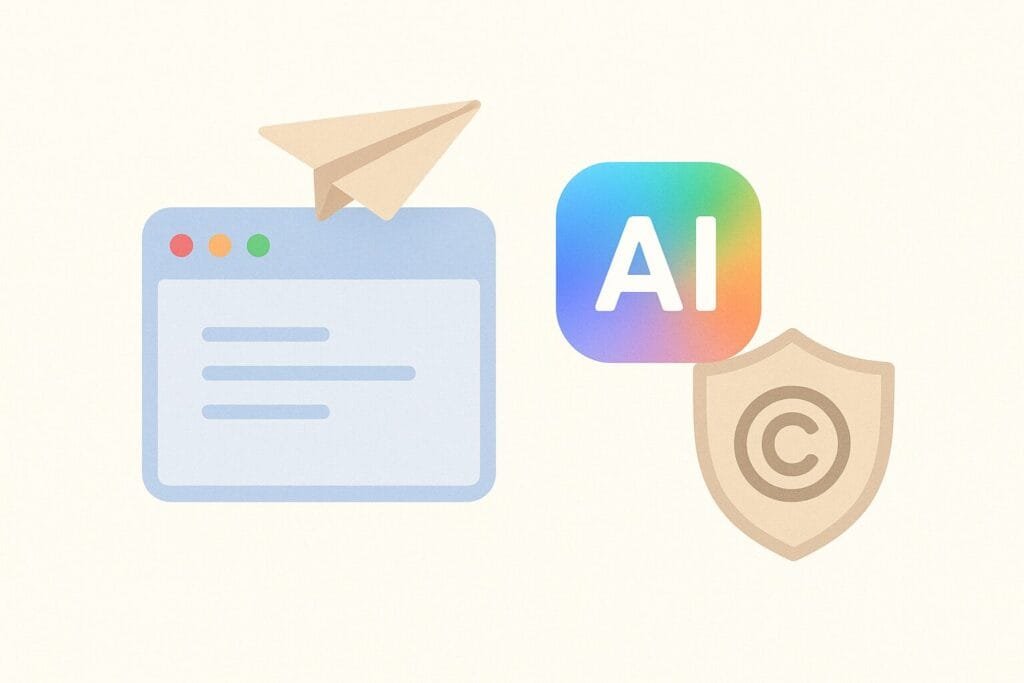The integration of Artificial Intelligence (AI) tools like GitHub Copilot in the software development process has transformed the way developers build, test, and deploy applications. Copilot, an AI-powered coding assistant, can generate entire code snippets, functions, or even project structures within seconds. While this innovation saves significant development time and boosts productivity, it also raises complex questions about copyright, intellectual property, and the future of app development.

Understanding GitHub Copilot and AI in Coding
GitHub Copilot is powered by OpenAI’s Codex, which has been trained on billions of lines of public code and text from the internet. Developers use Copilot to autocomplete code, suggest algorithms, or assist in debugging. For many, this feels like having an intelligent coding partner who can speed up workflows and reduce repetitive tasks.
However, since Copilot is trained on publicly available code, including open-source repositories, some developers and legal experts argue that it might reproduce copyrighted snippets without proper attribution. This concern leads directly into the discussion of copyright issues in AI-generated code.
Copyright Challenges in AI-Generated Code
Copyright law protects original works of authorship, including computer code. When AI generates code, the questions become:
- Who owns the copyright of AI-generated code?
- Is the developer who uses Copilot the rightful owner, or does ownership remain unclear?
- If Copilot generates a snippet similar to existing copyrighted code, is it considered infringement?
Currently, many legal frameworks do not provide clear answers. For example, in most jurisdictions, works created entirely by machines without human input are not eligible for copyright protection. That means if Copilot produces a unique snippet of code, it might fall into a legal gray area where no one truly owns the rights.
Benefits and Risks of Using AI in App Development
Below is a comparison table showing the benefits and risks of using AI tools like Copilot in app development:
| Aspect | Benefits | Risks |
|---|---|---|
| Speed & Productivity | Generates code instantly, reducing development time. | Over-reliance may reduce deep coding skills over time. |
| Learning & Assistance | Helps junior developers learn coding patterns. | Possible suggestion of insecure or deprecated code. |
| Innovation | Enables developers to experiment rapidly with new ideas. | Legal uncertainty about ownership of AI-generated code. |
| Cost Efficiency | Reduces need for repetitive manual coding. | Potential hidden costs in resolving legal disputes. |
Legal Perspectives Around AI and Copyright
Different countries have varying stances on copyright and AI-generated works. For example:
- United States: The Copyright Office has clarified that works generated by AI without human input are not protected under copyright law.
- European Union: There is ongoing debate around whether AI-generated works should fall under copyright or remain unprotected.
- United Kingdom: UK law allows copyright for computer-generated works, but this is subject to interpretation in cases involving AI models like Copilot.
This patchwork of legal opinions creates uncertainty for developers using AI tools in professional projects. Companies that deploy Copilot code in production apps may face risks if future rulings establish liability for copyright infringement.
Best Practices for Developers Using Copilot
Developers can mitigate risks while leveraging the power of AI tools by following these best practices:
- Review AI-generated code: Never copy-paste without checking functionality, security, and originality.
- Maintain attribution: If Copilot suggests a code snippet resembling known open-source libraries, include proper licenses.
- Use Copilot for inspiration: Treat AI as a tool to assist in problem-solving, not as a replacement for human creativity.
- Stay updated with regulations: Monitor updates from organizations like the World Intellectual Property Organization (WIPO), which regularly discusses AI and copyright law.
The Future of AI and Copyright in App Development
The future of app development will likely involve a hybrid approach, where AI provides suggestions, and developers act as supervisors and decision-makers. As AI continues to evolve, lawmakers will need to update copyright frameworks to address ownership, licensing, and accountability. Until then, developers should adopt responsible practices when using AI-generated code in their applications.
Conclusion
Copilot and other AI coding assistants represent a major leap in software development technology. While they offer undeniable advantages in productivity, efficiency, and creativity, the copyright issues surrounding AI-generated code cannot be ignored. Developers and companies must balance the benefits with the potential risks, ensuring compliance with current laws while preparing for future legal developments. The ongoing debate about copyright ownership in AI-generated works will continue to shape how we approach app development in the years to come.

